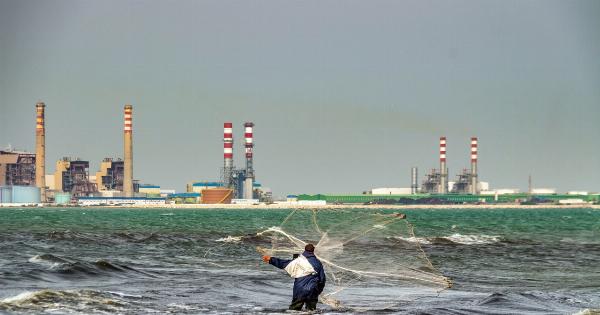Fatty fish are highly prized for their omega-3 content, which is essential for a healthy diet. However, overfishing and lack of regulation have led to declining quality of fatty fishery.
In this article, we will explore the causes of declining quality of prized fatty fishery and its impact on the environment and human health.
Overfishing
Overfishing is one of the primary causes of declining quality of prized fatty fishery. As demand for fatty fish such as salmon, tuna, and mackerel has increased, fisheries have failed to keep up with the demand.
This has led to many fisheries becoming overexploited, which means that they are unable to produce the amount of fish needed to maintain a healthy population.
The consequences of overfishing are manifold. First, it depletes fish stocks, which in turn can lead to a decline in the quality of the fish that remains.
Second, overfishing can lead to the extinction of certain species, which can have serious environmental and ecological consequences. And finally, it can negatively impact local economies that depend on the fishing industry for jobs and income.
Lack of Regulation
Another problem facing the fatty fishery industry is a lack of regulation. Without proper regulation, fisheries are free to fish as much as they want, without regard for the consequences.
This has led to a situation in which many fisheries are practicing unsustainable fishing methods, which are harming the environment and degrading the quality of fatty fish.
One example of this is the use of bottom trawling. This method involves dragging a giant net along the ocean floor, which catches everything in its path.
It is an incredibly destructive method of fishing, as it destroys the ocean floor and all of the organisms that live on it. It also catches a lot of non-target species, which are often discarded as bycatch, leading to unnecessary wastage of marine life.
Impact on the Environment
The declining quality of prized fatty fishery has a significant impact on the environment. As fish stocks decline, it disrupts the balance of the marine ecosystem.
Fish play an important role in the food chain, and the loss of certain species can have a cascading effect on other marine life. It can also lead to the collapse of entire ecosystems, which can have serious consequences for the environment and for human life.
In addition to the loss of biodiversity, overfishing and unsustainable fishing practices can also contribute to climate change.
When fish stocks decline, it can lead to increased carbon emissions, as fishing vessels are forced to travel longer distances to catch fish. This, in turn, contributes to greenhouse gas emissions and climate change.
Impact on Human Health
The declining quality of prized fatty fishery also has a significant impact on human health. Fatty fish are an important source of omega-3 fatty acids, which are essential for a healthy diet.
Omega-3s have been linked to a range of health benefits, including reducing the risk of heart disease and stroke, improving brain function, and reducing inflammation.
However, as the quality of fatty fish declines, so does its nutritional value. Fish that are caught from overfished or polluted waters may contain higher levels of toxins and pollutants, such as mercury and PCBs.
These toxins can be harmful to human health, especially for pregnant women and young children.
Solutions
There are solutions to the problem of declining quality of prized fatty fishery. One solution is to establish more marine protected areas, which limit fishing activity and help to replenish fish stocks.
Another solution is to implement more sustainable fishing practices, such as using selective fishing methods that target only the desired species, and avoiding destructive methods such as bottom trawling.
In addition, consumers can play a role in promoting sustainable fishing practices.
By choosing to buy fish that is labelled as sustainably caught or certified by third-party organizations such as the Marine Stewardship Council, consumers can help to drive demand for sustainably caught fish. This, in turn, can help to encourage fisheries to adopt more sustainable fishing practices.
Conclusion
The declining quality of prized fatty fishery is a serious problem that has environmental, economic, and health consequences. Overfishing, lack of regulation, and unsustainable fishing practices are all contributing to this problem.
However, through collaboration between governments, consumers, and the fishing industry, it is possible to create a more sustainable and healthy future for fatty fish and for the planet.





























